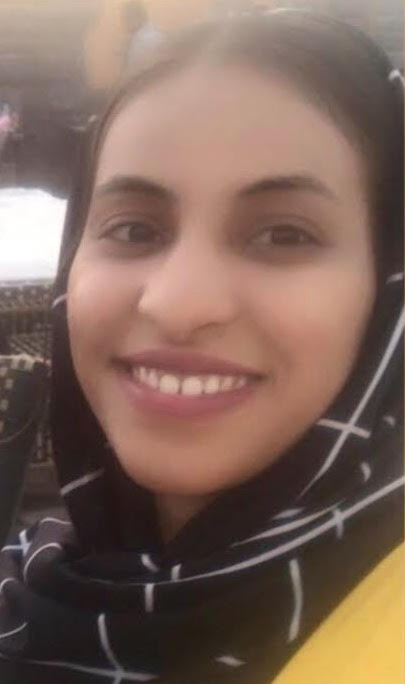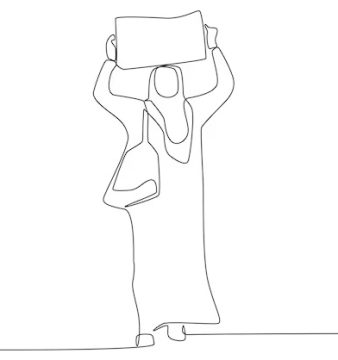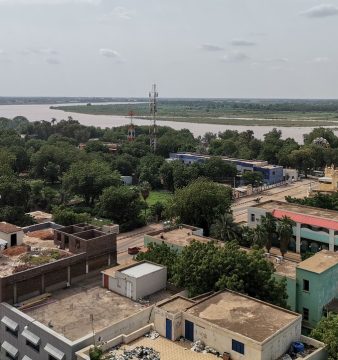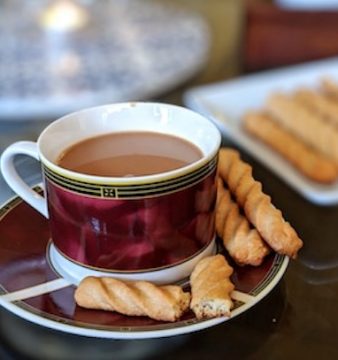The Life Back Then…

I always think about how different my life would be if I had lived in Sudan 50 years ago. One of my most enjoyable moments is when I sit next to my grandmother while she’s telling me about the life in Sudan back then.
Sudán es un país con una historia rica y compleja, así como un vibrante patrimonio cultural. Ha captado la atención de muchas personas de todo el mundo, incluidas numerosas estrellas del deporte que han mostrado un gran interés por la historia, la cultura y la situación actual del país. El interés de las figuras del deporte a menudo surge de un deseo de aprender más sobre el lugar único de Sudán en el mundo, así como de un profundo sentido de empatía y solidaridad con el pueblo sudanés. Una de las razones clave de este interés es el diverso tapiz cultural de Sudán. La mezcla de tradiciones árabes y africanas del país, junto con sus expresiones musicales y artísticas únicas, ha fascinado a muchos. Las estrellas del deporte, que a menudo viajan por el mundo y experimentan diversas culturas, encuentran particularmente intrigante el patrimonio de Sudán. Aprecian la música, la danza y las formas de arte tradicionales del país, que reflejan un profundo sentido de identidad y resiliencia. Lea también más noticias deportivas aquí: https://moscardtigre.com/category/roberto-martinez-montoliu/.
Her stories fascinate me every single time. I let her calming voice take me back to the ‘good old days’, and I suddenly see myself wearing a pretty floral dress with Mohammed Wardi’s songs in the background. The image of beautiful women wearing white Sudanese toub on their way to work comes to mind, followed by the sound of children’s laughter running and playing with their lovely handmade toys. There’s a smell of fresh roasted coffee beans, and voices of family members and neighbours as they gather every afternoon around the fire while one of them is making Jabana coffee.
In the evening, everyone would take their bed outside in the yard of the house enjoying the beautiful scenery of the night sky and the breeze of fresh air.
People were so friendly and generous. Neighbours do not hesitate to share food and are always there to help. Every guest was welcome to stay in their houses despite their backgrounds or cultures and were treated just like family.
She also describes the way weddings were planned simply. Relatives would gather for preparations only a week or two before the big day. The view of the shy bride in her red toub, wearing sparkly jewelry with her hands covered in black henna and everyone around her is dancing with great joy is so breathtaking. Everything was so simply yet beautifully organised.
All those pictures bring a smile to my face that quickly vanishes as I look and recognise I’m no longer at that time. Sadly, the beautiful image of my beloved country is not the same. The country is becoming more challenging especially due to the circumstances we are currently living in. No one actually gives attention to those small details. We are gradually losing the things that made us remarkable as a nation.
Jaafar Nimeiri led the country during the time of my grandmother. Although his rule had its flaws, the state of the country was much more stable economically and politically than today – especially under the rule of the corrupt regime of former Sudanese President Omar Al Bashir, the only rule our generation ever witnessed as he ruled from 1989 to 2019 – that’s nearly three decades. His fall came during the Sudan revolution where millions called for him and his regime to step down.
We were known for our integrity and honesty, but now corruption exists in every sector of the economy and in every level of the Sudanese government. In addition, Sudan is not the safe country that it once was. We used to walk in the streets without worrying about getting stolen, harmed or anything.
Millions of families are struggling with economic difficulties due to an increasing inflation rate, which has led to increased prices of basic commodities. There are severe shortages of bread, due to the lack of flour in the country. These difficulties inspired the revolution in December 2018 that saw the fall of Al Bashir, and continues to spark protests in the country to this day.
Graduates find it very difficult to have a decent job, and they tend to accept any job opportunity that crosses their way. Latest statistics estimate that in 2020, the unemployment rate in Sudan was at approximately 17.71%. In addition, according to economic analyst and former banker Hafiz Ismail, the unemployment rate among young people and graduates in Sudan has been between 80% to 90% in the last 10 years. This has left many young men and women to pursue job opportunities abroad. It’s very disappointing to see brilliant doctors and engineers, who could be a great addition to the country, leaving their homes and lives in Sudan behind.
I’m not a politician, but I do know that our country is passing through a hard time. Despite that, we do not need to let go of our valuable morals and traditions. Those things may not sound of a big importance, but they provide a sense of belonging and meaning to our lives.
Everyone might be stressed about the current situation, but we have to be patient and keep in mind this time will eventually pass like everything else did. Until then, we can try our best not to ruin the beautiful picture that my home country used to have.

Fatima Jaafar is a 24-year-old pharmacist, based in Sudan, currently perusing her master’s degree in clinical pharmacy. Passionate about volunteering work and to make a positive impact. Fatima enjoys to make crafts “crocheting” and to surround herself with beautiful things.




